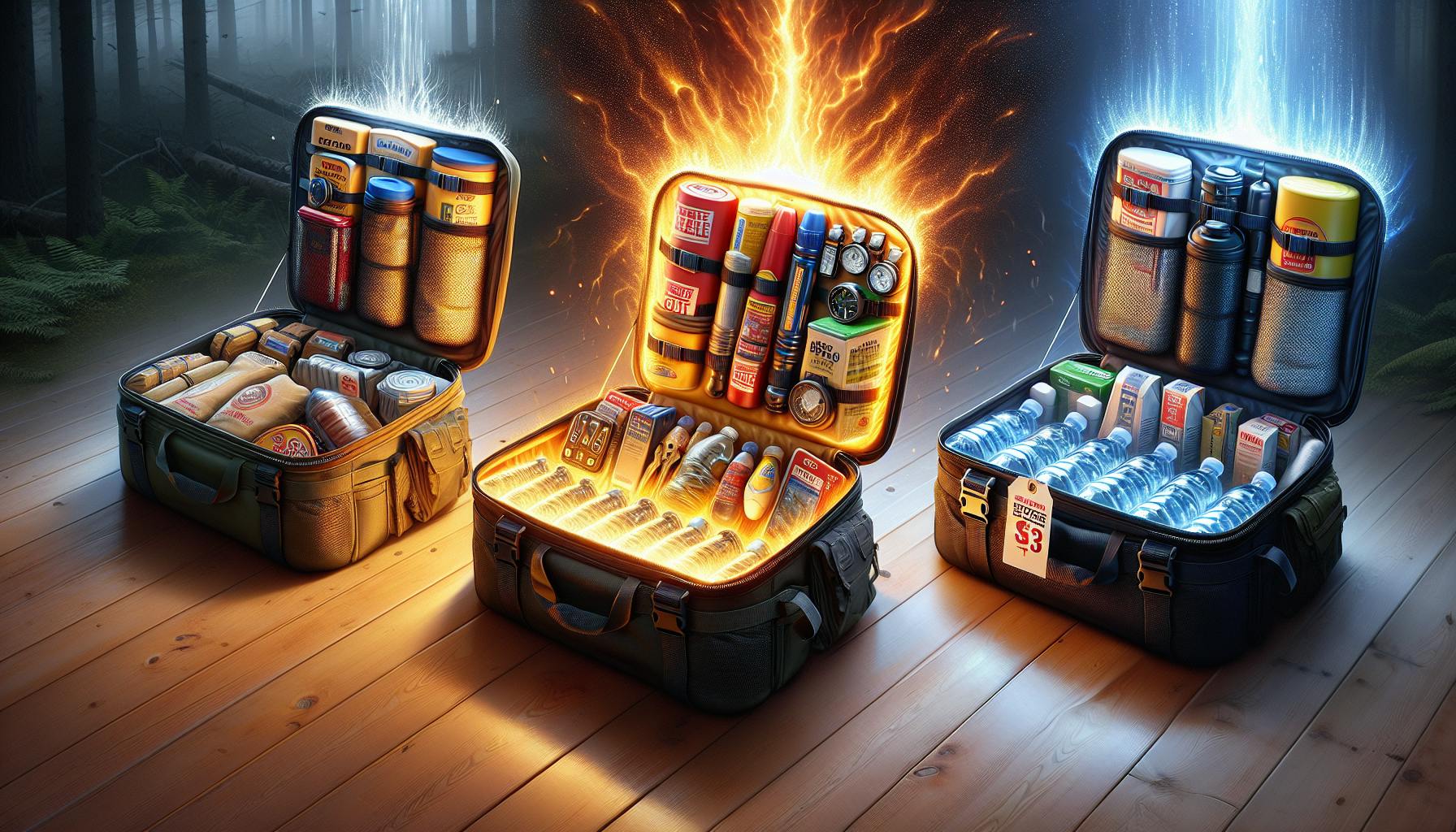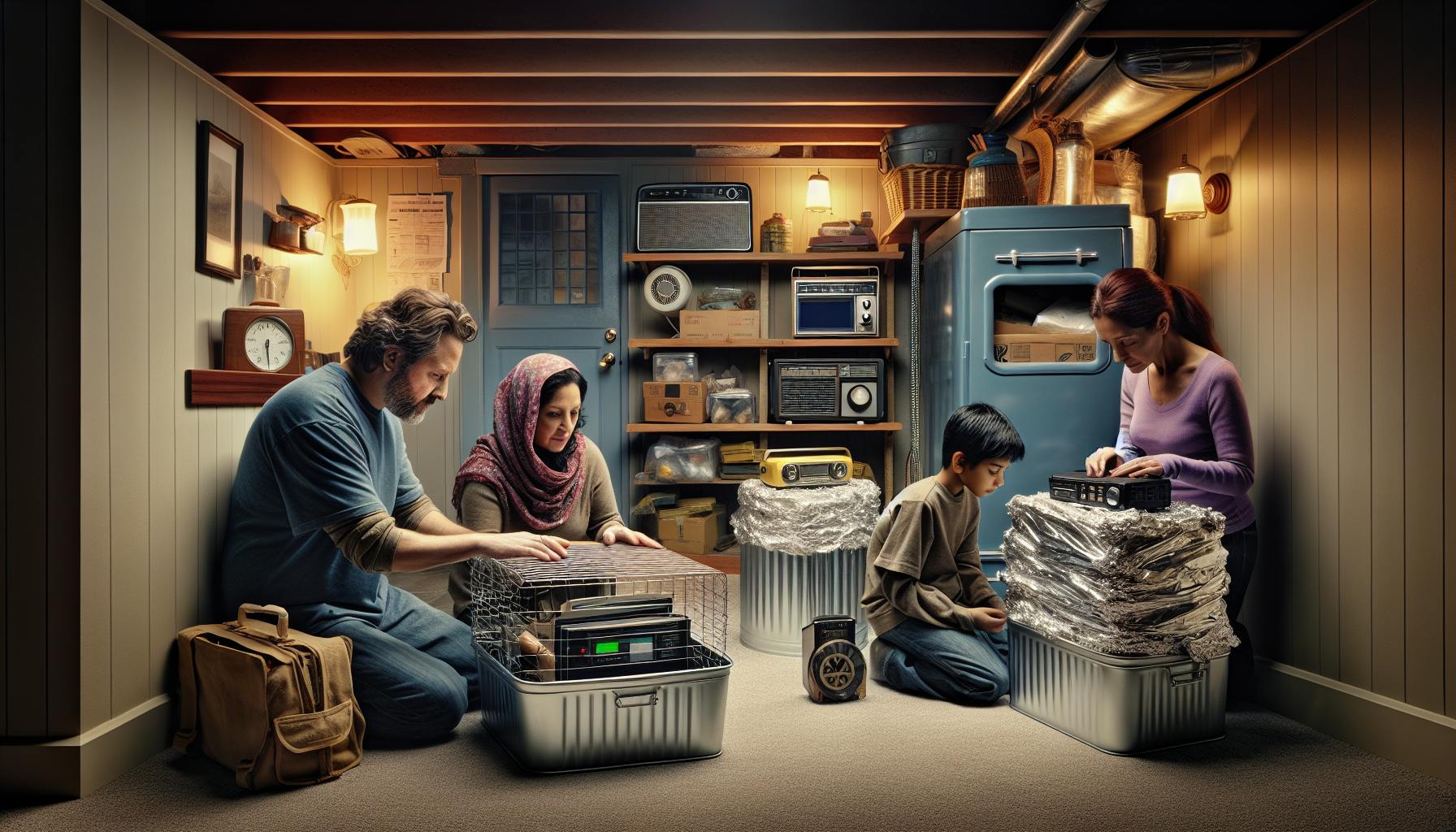Dumpster diving is the act of searching through commercial or residential garbage containers for useful items that have been discarded. For preppers on a budget, dumpster diving can be an extremely cost-effective way to stockpile valuable survival supplies. While there's often a stigma associated with sorting through trash, proper precautions and techniques allow you to overcome negative perceptions and uncover hidden gems.
When conducted discreetly and legally, dumpster diving aligns with sustainable living practices by reducing waste. Many retailers discard perfectly good yet slightly flawed merchandise. Grocery stores toss edible food nearing expiration dates. Items are often discarded due to minor cosmetic defects, not because they are unusable. With some cleaning and ingenuity, apparent "trash" transforms into prepper treasure.
Overcoming Negative Perceptions Around Dumpster Diving
It's true that the concept of dumpster diving conjures unflattering images of risky, messy behavior. However, one person's trash can become another's lifesaving treasure. Even billionaire investor Warren Buffet dumpster dived in his youth, demonstrating that many successful figures understand the value of frugality. Tech pioneers like Jeff Bezos and Elon Musk promote efficient use of resources despite their wealth. Many divers simply aim to reduce waste—not promote a shabby lifestyle.
When diving is conducted discreetly during off-hours, focusing only on sealed, sanitary items, the practice can be kept private. Avoid leaving messes, stay organized, and thoroughly clean all finds to erase traces of dumpster origins. Imperfections and flaws can often be fixed—a scratched table just needs some wood polish and paint. With cleverness, discarded items can be restored and reused rather than go to waste.
Best Practices for Safe and Effective Dumpster Diving
First, never go alone and always inform someone of your location. Bring along sturdy gloves, boots, flashlights, and grabbers for safety and efficiency. Target dumpsters away from active buildings and high-traffic areas to avoid attention. Nighttime offers more privacy, though some opt to dive during stores' opening hours to access newly discarded goods.
Retail stores frequently toss out slightly damaged yet usable merchandise like furniture, appliances, and electronics needing minor repairs. Grocery store dumpsters contain edible foods nearing expiration. Restaurant dumpsters offer unused baked goods. Construction site dumpsters provide building materials for projects.
What to Expect When You Go Dumpster Diving
Department stores dispose of returned items daily, meaning potential apparel finds like clothing, shoes, handbags, and fabrics. Craft stores discard surplus art supplies and electronic retailers toss out display models. Grocery stores regularly clear out expired yet still consumable foods like bread, dairy products, produce, granola bars, dry cereal, crackers, canned goods, and bottled beverages. Restaurants toss unsold baked goods, unused pizza slices, and expired dairy items.
Around colleges, dorm dumpsters overflow with discarded furnishings, mini fridges, electronics, and clothes when semesters end. Construction site dumpsters offer wood, tile, fixtures, flooring samples, hardware, and tools. Check under debris and be prepared to clean items after diving. Avoid dumpsters containing hazardous materials or medical/biological waste.
Useful Things You Can Find Through Dumpster Diving
Food: Bread, dairy products, fresh produce, granola bars, dry cereal, crackers, pasta, rice, canned goods, candy, soda, bottled water.
Clothes: T-shirts, jeans, jackets, shoes, handbags, accessories, fabric scraps.
Furniture: Tables, chairs, sofas, cabinets, shelves, lamps, area rugs.
Appliances: Microwaves, mini fridges, coffee makers, vacuums, electronics.
Supplies: Textbooks, notebooks, pens, craft materials, tools, gardening items.
Building Materials: Lumber, tile, hardware, fixtures, carpet samples, paint.
Hazards to Avoid While Dumpster Diving
Use extreme caution around broken glass, rusty metals, and hazardous materials in dumpsters. Avoid food waste and dirty items which can harbor germs. Watch for sharp objects that could cause lacerations. Don't climb inside dumpsters or reach in too deep - they can compact unexpectedly. Never trespass onto private property. Prioritize safety above all else.
Laws and Ethics Around Dumpster Diving
Dumpster diving falls into a legal gray area. While some view it as stealing garbage, courts have ruled that trash set out for collection is public domain. However, practices like trespassing onto private property or making a mess can violate local laws. Be sure to research regulations in your area. It's wise to dive at night, pick quickly, and leave no trace. Only take clean, sealed items to avoid accusations of theft. Avoid areas with signs prohibiting trespassing or scavenging. Overall, dive discreetly and avoid confrontations.
Where to Go Dumpster Diving
The key is targeting dumpsters where quality goods are routinely discarded. Grocery store dumpsters provide expired yet edible foods. Restaurant dumpsters contain fresh baked goods and leftovers. Department store dumpsters hold returned or slightly flawed merchandise. College dorm dumpsters overflow with furnishings when semesters end. Construction site dumpsters offer building materials.
Seek accessible dumpsters away from buildings and foot traffic without compactors or fences. Potential hot spots include grocery stores, drugstores, thrift shops, office buildings, apartment complexes, schools, and clinics. Watch for clues like recognizable brands, sealed packaging, and minimal usage.
What to Look for When Dumpster Diving
Inspect food packaging carefully for intact seals and check expiration dates - often items are tossed while still consumable. Seek out sealed dry foods, canned goods, bread, and unopened snacks. Thoroughly inspect clothes for irreparable stains and damage. Test electronics to ensure they power on. Check furniture and appliances for broken parts needing repair. Ensure toiletries and cleaners are completely sealed. Peruse books and media for ones in pristine condition. Search under debris for hidden finds. Avoid contaminated or hazardous materials.
Ideally target foods nearing expiration with undamaged packaging. Well-sealed dry foods often get discarded simply for passing expiry dates, even though many remain shelf-stable. Dairy products, fresh produce, bread and snacks typically get tossed a few days prior to expiration but are still edible.
For apparel, seek out items with minimal wear and stains that can be washed out. Dumpstered furniture and appliances with minor flaws like scratches can gain new life through DIY repairs. Thoroughly inspect electronics before considering them reusable.
Cleaning and Sanitizing Dumpster Finds
Thoroughly disinfect all dumpster finds before use. Clean hard surfaces with antibacterial wipes, soaps, and diluted bleach solutions. Use vinegar, hydrogen peroxide or gentle detergents on fabrics - avoid harsh chemicals that could damage them. Dry electronics fully with microfiber cloths before testing after cleaning.
Avoid dumpster foods lacking safety seals or showing contamination. Don't keep fabrics with permanent stains. Discard electronics with interior water damage or rust. Repair furniture flaws using touch up paint, wood filler, super glue, and other DIY fixes. When in doubt, throw it out - don't risk your health.
Reusing Your Dumpster Finds
Put your creativity to work when repurposing discarded goods! For example, lids can become trays, scrap fabrics can be sewn into throw pillows, and old crates make handy storage containers. Vintage artwork, posters and album covers can be framed into wall art. Broken appliances can have new life as quirky planters. Quick fixes like superglue, duct tape, wood filler and touch up paint restore many finds.
You can donate or resell quality items you won't use. Vintage collectibles, jewelry and electronics sell online or at consignment shops. Old textbooks and excess school supplies make excellent donations to schools and libraries. Clothing in good shape can be given to shelters. Donating unused finds gives back to the community.
Proper storage helps organize your dumpstered inventory. Use clear bins and detailed labels to easily identify contents. Store fabrics in sealed bags to prevent mildew. Maintain an inventory list to track stockpiles. Organization maximizes space and simplifies locating items later.
Purchasing dumpster finds like clothes, appliances or textbooks new often costs hundreds to thousands of dollars. But by salvaging quality discarded items, you can save tremendously on prepper supplies. Repurposing free dumpster finds is far more economical than buying new. Let dumpster diving make prepping more affordable and sustainable.
So don't let stereotypes deter you - give dumpster diving a try! With proper practices, you can score quality goods safely, discreetly and legally. A trash bin can provide treasure troves when approached with finesse, care and ingenuity. Dumpster diving enables preppers to drastically reduce costs while acquiring useful gear and provisions. Don't let anything go to waste - dive on in to dumpster life and uncover the hidden gems waiting inside!


